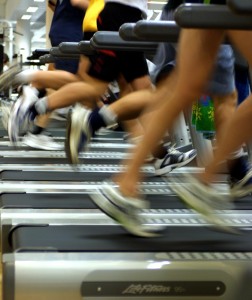Monthly Archives: June 2012
10% done already!!!
Yup it is day 9 of 90 which means that I am 10% done!!!
Day 8 of P90X
Man I killed chest and back today and I feel like it was trying to kill me, man what a great feeling…
Want a 9% Raise? Hit the Gym
By Jack Hough | SmartMoney – Thu, Jun 7, 2012 1:08 PM EDT
 Stagnant wages and shaky investment markets are enough to make workers want to hit the gym to forget about their money troubles. They might just find that the treadmill offers better financial returns than Wall Street.
Stagnant wages and shaky investment markets are enough to make workers want to hit the gym to forget about their money troubles. They might just find that the treadmill offers better financial returns than Wall Street.
Workers who exercise regularly earn 9% higher pay on average than those who don’t, according to a study published in the June issue of the Journal of Labor Research.
Past studies have linked exercise with higher earnings, but the direction of cause and effect wasn’t clear. If gym-goers are more disciplined than their slothful coworkers, they might earn higher pay simply because they’re better workers, not because they exercise.
In an effort to cut through the confusion, Vasilios Kosteas of Cleveland State University, the study’s author, used a statistical technique called propensity-score matching. The idea is to score each study subject on whether they fit the profile of someone who exercises, based on factors like age, education level, and whether he or she played sports in high school.
By comparing subjects with similar scores, only some of whom exercise, Mr. Kosteas says his study indicates that exercise leads to higher earnings — although he also says follow-up studies are needed to know for sure.
Exercise has been shown in other studies to boost mental function and energy levels and improve mood. In that respect, it’s possible that it makes workers more valuable to employers.
If it’s any motivation for workers, the study suggests time at the gym pays for itself, and then some.
 In May, the average American worker earned $23.41 an hour, according to the Labor Department. Assuming three hours of exercise per week, enough to satisfy the minimum level used in the study, a typical worker’s time spent huffing and puffing is valued by the labor market at $70.23. His extra pay over a 40-hour work week is worth $84.28–about 20% more.
In May, the average American worker earned $23.41 an hour, according to the Labor Department. Assuming three hours of exercise per week, enough to satisfy the minimum level used in the study, a typical worker’s time spent huffing and puffing is valued by the labor market at $70.23. His extra pay over a 40-hour work week is worth $84.28–about 20% more.
Of course, even if the study findings hold for large numbers of people, there’s no guarantee an individual’s workouts will lead to a raise. But it may bring other financial rewards, like lower healthcare costs and the ability to remain productive into old age.
Mr. Kosteas takes his own investment advice. At 5’6” and 165 pounds, he says he lifts weights regularly–even if he has put on 10 pounds since the birth of his son. Two years ago he got a promotion and a raise.
P90X Day 4 – Bring the ooommms with YogaX
P90X Day 3 – ShampooX and ARX Hair
P90X Day 2 in Review
So this being my third round I have decided to create some videos tracking my progress through P90X. So visit often as I will keep you updated of how it is going!
Lack of sleep: Can it make you sick?
 Q: I’m having trouble sleeping lately. Does this increase my chances of getting sick?
Q: I’m having trouble sleeping lately. Does this increase my chances of getting sick?
Yes, lack of sleep can affect your immune system. Studies show that people who don’t get a good night’s sleep or who don’t get enough sleep are more likely to get sick after being exposed to a virus, such as the common cold. Lack of sleep can also affect how fast you recover if you do get sick.
During sleep, your immune system releases proteins called cytokines. These substances increase in the presence of an infection, inflammation and stress. Increased cytokines are necessary in fighting infection and regulating deeper sleep. In addition, other infection-fighting cells are reduced during periods of sleep deprivation. So, your body needs sleep to fight infectious diseases.
How much sleep do you need to bolster your immune system? The optimal amount of sleep for most adults is seven to eight hours a night. School-aged children and adolescents need nine or more hours of sleep a night.
But be careful; more sleep is not always better. For adults, sleeping more than nine to 10 hours a night has been associated with weight gain, heart problems, stroke, sleep disorders, depression and other health concerns.